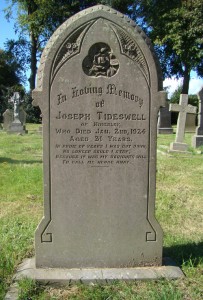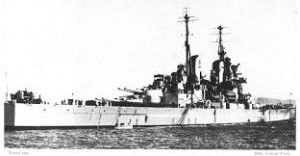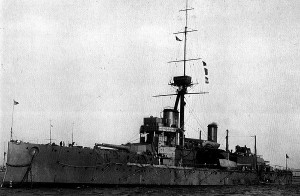Private Earnest Upton came from Greendale near Oakamoor. Some of the letters he wrote from the front have come into our possession and a volunteer Pauline King is kindly working her way through them and transcribing what he wrote.
Here is the second installment of his letters – the earlier ones can be found HERE and more information on Earnest can be fond HERE
Friday, October 15, 1915
Dear Jack and Bella
Just a few lines hoping this will find you all in the best of health as it leaves me, I received your letter last night Thursday 14th and was pleased to hear from you. I am sorry about you having to move, moving it is not a very pleasant job is it but perhaps you may be better yourself by it. I got the paper alright thank you very much for it but perhaps it would be wise not to send any more they may not reach me there was some talk of people not being allowed to send them to us.
I had just come out of the trenches when your letter arrived. We have had only one wounded this time. I really thought my time had come on Sunday morning a small party of us was throwing some dirt out of the trenches when the Germans started shelling us they could see the dirt coming over the tops, they have got the range to a very few yards it was a lucky day for us. Shells was flying all around us and all we could do was lie flat and wait for them to either give over shelling us or blow us up. The wind from them was enough to knock a fellow down so you can tell they was close. Remember me to Luton. Tell he will have to pull himself together now but it will be a hard job for him. He has had to much of his own road all his life. I hope the old man starts a good business at Cheadle it would just suit me going round getting orders for him. Has he had some money left him or what. Remember me to the children. I hope to see them again sometime soon. I hope but from what I can see of this war it’s going to last a bit yet, but we have thirved them down a lot this week. I don’t know where the devil he is getting all his men from. There was seven thousand Germans left dead all in one place the other day, but others kept bobing up yet.
You must excuse this side being dirty, I expect it’s with my maid cleaning the study out. I don’t think we shall be in the trenches for a week or two again. I don’t think it will upset me much. It’s to hot a place for me and I was never very fond of fighting of any kind. It would be a treat to get away.
(Unreadable sentence)
I am sorry I gave you a shock with my card but they are very handy when we have no time to write letters. I must close now so no more this time with love to you all, E Upton
12267
B Coy
9th North Staffs
B E F France
Dec 4/1915
Dear Freda,
Just a few lines hoping this will find you all in the best of health as it leaves me at present. I received your letter and parcel and was very pleased to hear from you. Thank you very much for the baca and pipes, they comes as a God send to me, I was very near stranded for a smoke. Remember me to your Mother and Dad. Also thank Miss Barnett for her kindness. Remember me to Luton. I am sorry he is ill, tell him to pull himself together he’s not dead yet. The Germans don’t wear helmets now so I shall not be able to bring you one of them. I am sorry that Jack as to move I hope he will soon get another suitable place. I shall not forget you when I come over, I know Miss Barnett’s house, there has been a little increase in the passes so that will bring my furlow a little sooner but it won’t be for some time yet. Remember me to Reg, Ron and the children, I cannot think of all their names. We have had some snow and frost now but it’s raining in torrents night and day, it makes it rather miserable being so wet. I must close so no more this time love to you all from E Upton Thank you very much for the parcel X X X X X X X X X X X I should be very pleased of a little writing paper.
Jan 6/1916
Dear Freda,
Just a few lines hoping this will find you in the best of health as it leaves me at present. I received your letter on the 4th and was very pleased to hear from you, I found out where the French house was by a little thinking how does mother like living there, it will be nice for you to pop in in your spare time. Remember me to your Mother and Dad also the children. I hope they are all going on well. We are having some decent weather over here now it’s a treat towards what is as been. I have not heard from Luton yet, perhaps he is busy selling milk. I must close now so no more this time with love from E Upton X X X X X X X X X X X X



